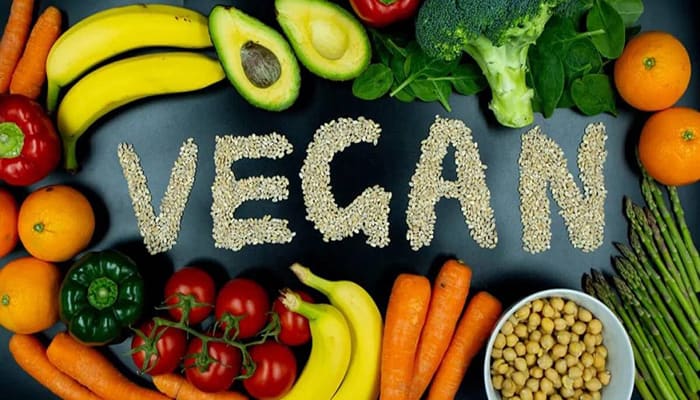
Changing to a vegan lifestyle means more than just changing the food you eat. It also includes a shift in other aspects of your life, such as supporting animal-free products and spending time at animal sanctuaries.
For some people, switching to a vegan diet may seem impossible, especially if you don’t have the right vegan cooking equipment. However, it can be a gradual process.
Table of Contents
It’s Easy
Becoming vegan isn’t as difficult as some people might think, especially for those who are already vegetarian or pescatarian. The biggest challenge is transitioning from an “all or nothing” mindset to gradually eliminating animal products instead of just cutting them out all at once. This change will require you to learn how to cook differently and rely on alternative sources of protein, such as whole grains, beans, nuts, seeds, and tofu. It also requires learning how to read ingredient lists, avoid foods containing gelatin or rennet, and research vegan-friendly restaurants.
The most important thing to remember is to take it slow. A vegan diet is just as diverse and varied as a non-vegan one, and it’s best to start by incorporating as many plant-based options into your daily meals as possible. This will help you feel prepared for the future and familiarize yourself with how to best nourish your body in a vegan way.
Another great idea is to slowly ramp up your meatless meals each week and try to incorporate vegetables into all of your meals – including breakfast! This will make the transition easier, and you’ll be surprised at how delicious meat-free dishes can be. For example, try swapping out your traditional dairy alfredo for a homemade cashew version on pasta night, or substitute ground beef with grilled tempeh on taco night!
It’s also essential to have a good motive for going vegan and to focus on this throughout the transition process. This can be hard to do, especially when faced with challenges – such as going back and forth and struggling to stick to your new routine. However, if you’re motivated to help animals, the environment, or your health, it will be much easier for you to stay on track! This is also why keeping motivational reminders around is a good idea – such as pictures of your favorite animals!
It’s Healthy
A vegan lifestyle is full of healthy food options that are high in fiber, protein, vitamins, minerals, and omega-3 fatty acids. Many of these foods are also heart-healthy, cancer-protective, help prevent diabetes and obesity, and lower the risk for kidney disease and arthritis. Additionally, a vegan diet eliminates foods that can cause chronic health issues, such as gout, gallstones, osteoporosis, and high cholesterol.
You can go vegan in several ways, depending on your preferences and what you are used to eating. Some people choose to do it all at once, whereas others will start by going vegetarian and then transitioning into veganism, or they may simply begin to cut out animal products, such as meat, dairy, and eggs, one at a time.
Changing to a vegan lifestyle will likely mean you eat more whole grains, legumes, tofu, nuts, and seeds. This will help to boost your iron, folic acid, and zinc levels. Additionally, you’ll be able to find vegan versions of your favorite dishes and snacks that will satisfy the things you miss from traditional processed foods, such as pizza, mac ‘n’ cheese, hamburgers, chicken nuggets, and sodas.
When making the switch, it is important to be sure that you are doing it for the right reasons. If you’re not doing it for ethical or health reasons, you might not stick with the lifestyle long-term. Having a strong motive will keep you motivated and ensure that you are able to stay on track.
Another thing that can help to make the switch easier is to join a vegan community. This could be done in person by connecting with other vegans at local restaurants or through a group on social media, or it could be virtual, such as by reading books about lifestyle or watching documentaries. It’s important to get support as you make this change, as it will be a big challenge at first, but you will eventually find your groove. Also, you’ll be able to learn from the mistakes and successes of others, which will help you to avoid some of the common pitfalls.
It’s Ethical
Many vegans believe that a plant-based diet is more ethical than one that includes meat and dairy products. They also try to avoid animal-derived products such as cosmetics and clothing, leather shoes and clothes, and wool and fur. They try to support vegan-friendly companies rather than those that are owned by meat and dairy companies. They may also choose to participate in vegan challenges organized by organizations such as Viva and Veganuary to help them make lasting changes.
Environmental ethics is another important aspect of a vegan lifestyle. Vegans may choose to grow their own vegetables and fruit or purchase them from local sources to limit greenhouse gas emissions and loss of biodiversity. They may also choose to purchase fair trade products and avoid buying food produced with pesticides and chemicals. Additionally, they might avoid eating soy, which is a major driver of deforestation in Brazil.
Despite these strong ethical motivations, many people that decide to become vegan do not stick with the lifestyle for long. It is important to focus on a motive that is more than just ethical or environmentally friendly, and it can be helpful to have a support system in place to keep you accountable. If you are trying to be vegan for the animals, you may want to consider joining an animal rights group or working at an animal rescue sanctuary.
A lot of misinformation about the vegan movement can be difficult to navigate. For example, some people within the vegan community claim that someone who only avoids eating meat is not a true vegan. They often cite the use of fur or leather as proof that they are not being consistent with vegan ideals. This can be a bit frustrating for those that are not familiar with the movement and have no idea of the different levels of veganism.
It is important to educate people that are skeptical of veganism and the impact it can have on our planet and the lives of animals. Educating them in a non-condescending manner and urging them to watch documentaries such as Cowspiracy or Forks Over Knives can help them understand why veganism is so important. It is also important to emphasize that not all vegans are the same, but they all work towards the same goal of helping animals.
It’s Delicious
If you’ve been a vegetarian for some time, you probably know that many delicious meals can be made without adding meat. The same is true of vegan foods, many of which are as tasty or even more tasty than their animal product counterparts. In fact, you can replace a whole range of traditional processed foods, like pizza, pasta, hamburgers, nuggets, and soda, with vegan versions.
Many people find that it’s easier to stick to a vegan diet if they take a gradual approach. One of America’s most influential food writers, Mark Bittman, recommends a “Vegan Before 6:00” strategy, wherein you eat a totally vegan diet through breakfast and lunch. From then on, you can eat whatever you want until dinnertime, which can include both vegan and non-vegan foods.
Keeping up your motivation for going vegan is crucial. If you don’t have a strong moral reason, it will be too easy to fall back to your old ways and consume animal products again. If you’re vegan for the animals, for the planet, or your health, it will be much harder to justify slipping up and eating something that goes against your values.
It can also help to spend time with people who live and love the vegan lifestyle. If you don’t have any vegan friends or acquaintances, join online communities to meet people who share your newfound interest in a cruelty-free lifestyle. You can swap recipes, get recipe ideas, learn about new products at the grocery store, and learn about vegan restaurants in your area.
Don’t tell everyone and their mother about your plans to go vegan. This can lead to people teasing or shaming you, which will make it more difficult to stick with your goal. If you must tell others, be honest and let them know that you’re making a healthy and compassionate choice for both the animals and you. They should respect your decision and not make you feel guilty about it. If they don’t, they aren’t worth your friendship.
Follow – https://sggreek.com for More Updates


